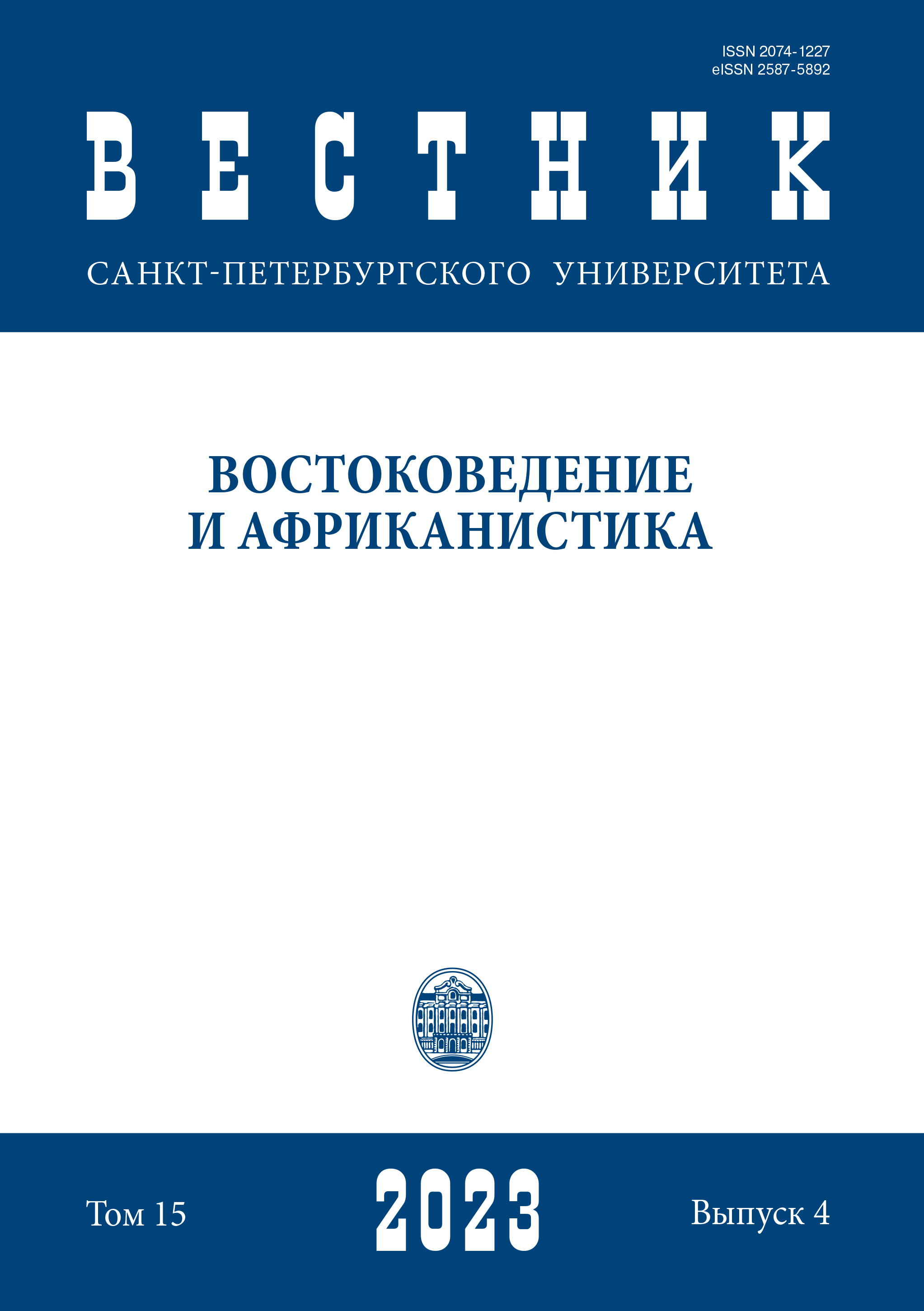Translations and Publications of Russian Sources on the History of Sino-Russian Relations during the Qing Dynasty in China
DOI:
https://doi.org/10.21638/spbu13.2023.401Abstract
At the beginning, the Qing Dynasty maintained a certain level of contacts with countries around the world. Later, China was closed for a while, but soon found itself forcibly opened. During this period, foreign missionaries, diplomats, merchants, military men, researchers and others began to flock to China. They were extremely surprised by life in Qing China, and therefore recorded everything they saw and heard. The number of their works, which are stored in libraries, archives, museums or private collections in various countries of the world, is incredibly large, and they are valuable materials for understanding the history of the Qing Dynasty and China’s foreign relations for almost three centuries. Russian sinology originated at the beginning of the 18th century, when the Russian Orthodox Mission was founded in Beijing. The ROM operated in China from 1715 to 1956, while it should be noted that almost two hundred years of its existence occurred during the Qing Dynasty. In the early period (1715–1861), it acted as the diplomatic representation of Russia in China, so among the members of the ROM there were many sinologists who studied the history of the Qing, especially
the history of Sino-Russian relations during the Qing dynasty. The high level of research and the special view contained in the works is of great importance to us. In this regard, since the 1980s, Chinese scientific institutions and individual scientists have consistently translated important works of Russian sinologists into Chinese.
Keywords:
Qing China, history of Sino-Russian relations, Russian sources, translations, publications
Downloads
Downloads
Published
How to Cite
Issue
Section
License
Articles of "Vestnik of Saint Petersburg University. Asian and African Studies" are open access distributed under the terms of the License Agreement with Saint Petersburg State University, which permits to the authors unrestricted distribution and self-archiving free of charge.





